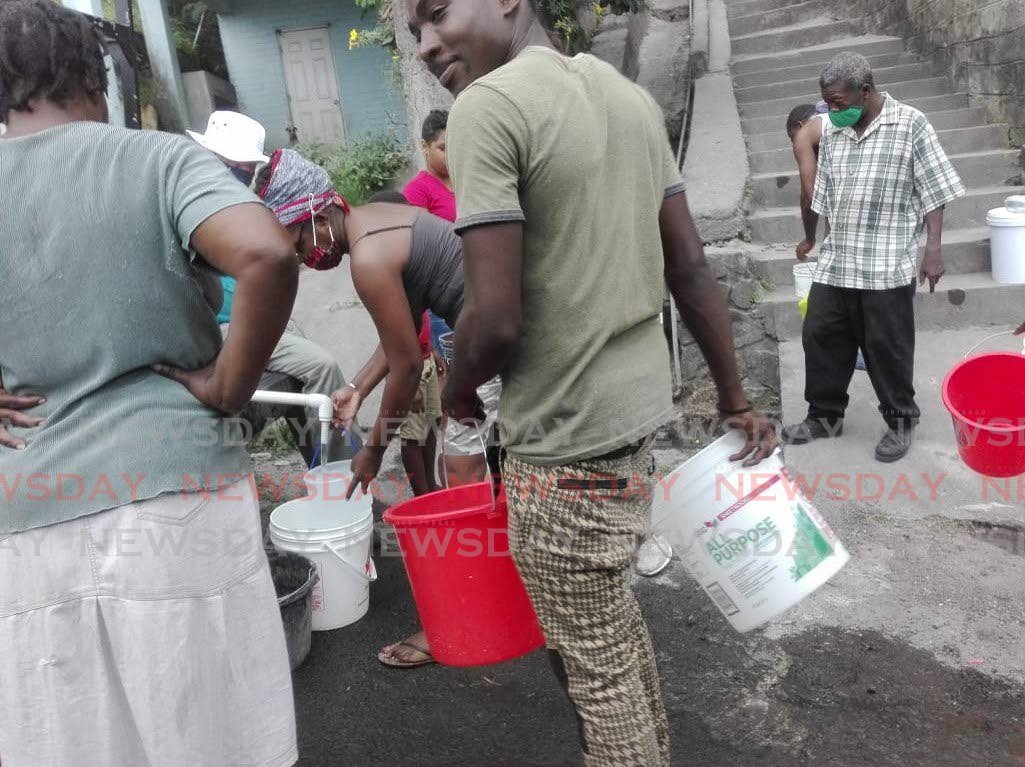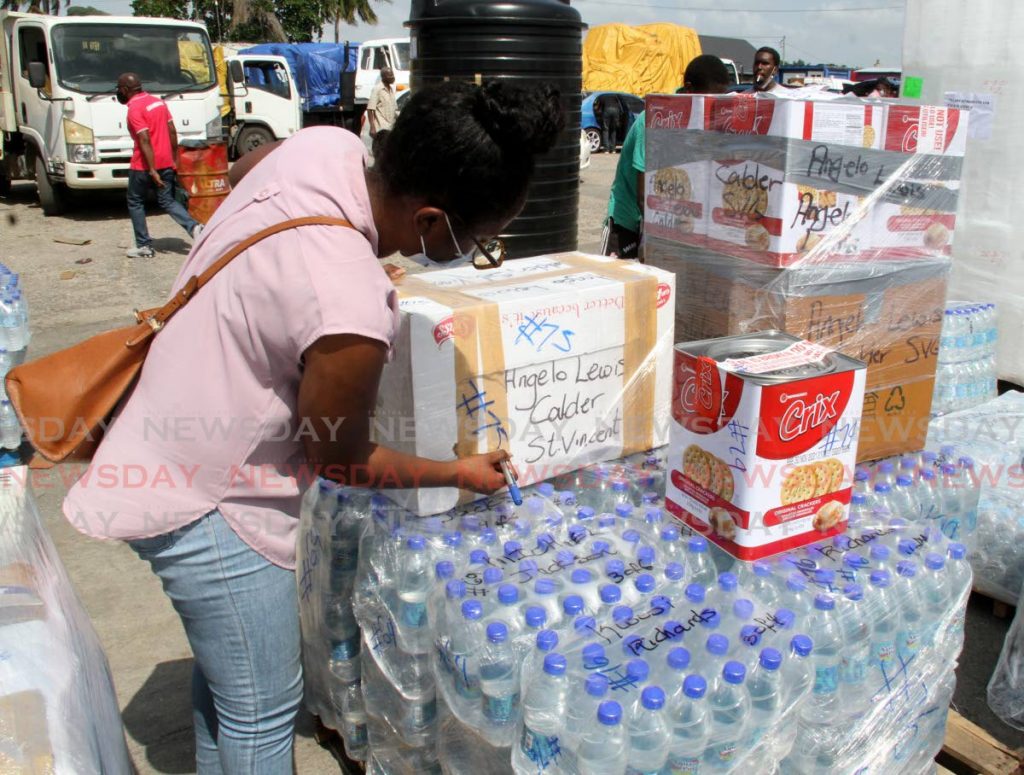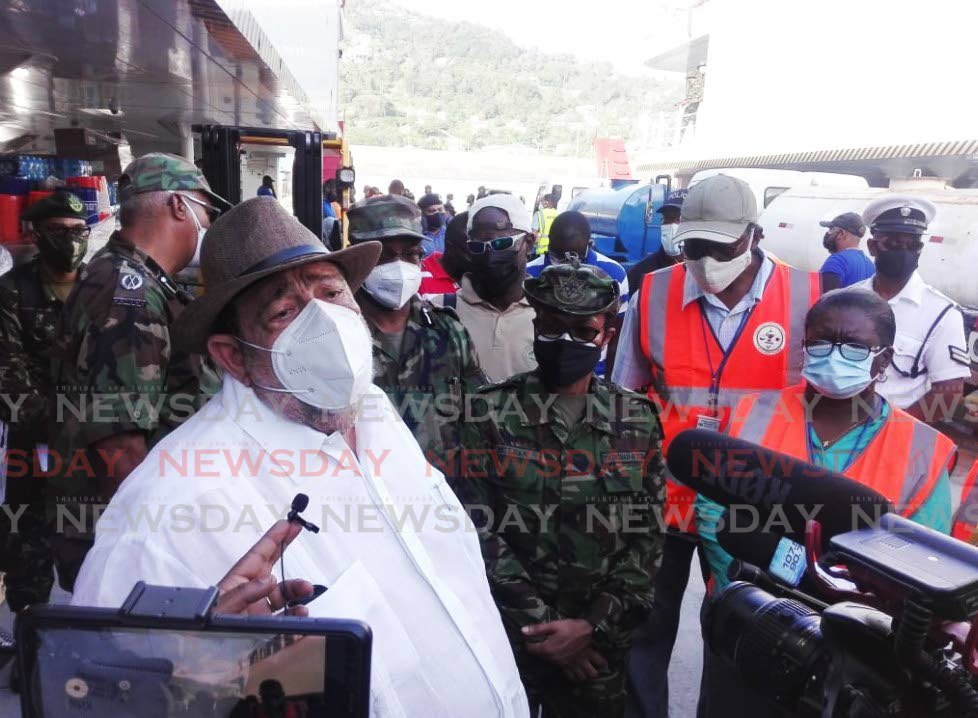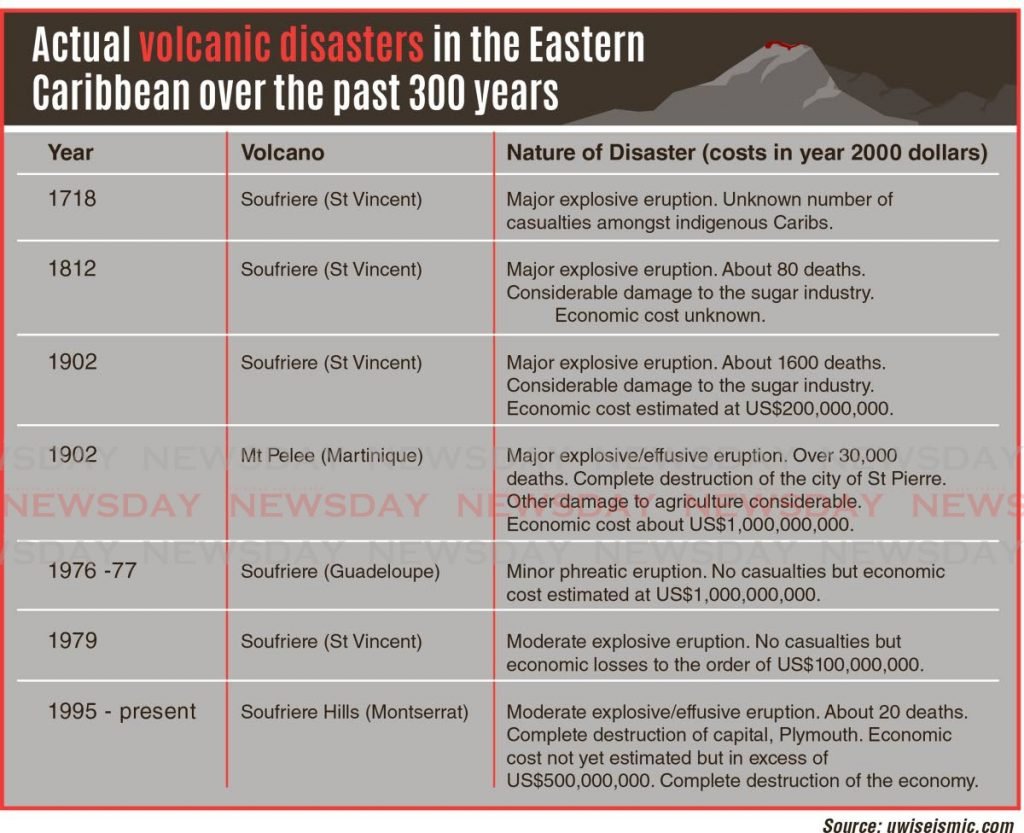St Vincent's long road to recovery: grapples with eruptions, covid19, dengue

St Vincent and the Grenadines Red Cross youth liaison LaToya Creese believes the road to recovery for the island will be a long, challenging one, as the country is dealing with three "disasters" at the same time.
"We were not just coping with covid19 in St Vincent. We were coping with covid and dengue because we still have an ongoing outbreak...Now we are dealing with a volcanic eruption, and on top of that we are heading into the hurricane season," Creese, a Vincentian, said.
Creese and disaster preparedness co-ordinator for the Port of Spain country cluster of the International Federation of Red Cross (IFRC) Rhea Pierre spoke with Sunday Newsday via Zoom on Friday. The two are on the ground in St Vincent helping with relief efforts.
Explosive eruptions of the La Soufriere began on April 9, and for the past week periodic eruptions have taken place, covering the island in ash, which has reached as far as Barbados. In addition, the eruptions caused pyroclastic flows to cascade down the mountainside, and residents in what has been labelled the red zone have been forced to evacuate and find refuge in shelters.
"We are still in awe at how beautiful pictures of the eruption is, yet it's causing so much destruction...The big, glorious 'boom' that went straight up into the air and then it came back down in a matter of minutes," and covered everything with ash, Creese, who was on hand to witness it all, said.

As a members of the Red Cross national societies, Creese and Pierre have a humanitarian mandate to uphold, so as long and exhausting as their days may be right now, they understand that the work they are doing is necessary.
"It's disheartening when you have to listen to people who come to our door asking for help," Creese said. "I have a close connection to one of the shelters because I would have worked there before being transferred here. And hearing the cries, 'we don't have this or that,' it's disheartening, and knowing you in your limited capacity can only do so much."
Pierre and the small TT contingent arrived on the island on the Galleons Passage on April 13 as humanitarian workers and hit the ground running. "When we left TT we had to present a negative PCR test within 24 hours of leaving, so we are subjected to working quarantine protocol... Right now we are helping to co-ordinate the operation in terms of supplying cleaning kits, hygiene kits, psycho-social support. It's a trying time for everyone. In the shelters we will be co-ordinating with Unicef to make sure that there are safe spaces for children... We are doing a proper needs assessment for distribution of supplies... make sure supplies are properly co-ordinated and distributed," she said.
The team has also been co-ordinating with NEMO (National Emergency Organisation) to ensure everyone is served, both within the private and public shelters. The Red Cross is in the process of registering those in informal shelters – people staying in private homes, hotels and guest houses – to get an idea of those who have been displaced so they can receive aid. "They need to register so that they can get the aid, because we wouldn't know unless you register," although the needs of people in informal shelters may not necessarily be the same need as people in formal shelters.

She said "on paper," she is supposed to be in St Vincent until the middle of May, but the way things look, it could be longer.
"We will be launching a larger-scale operations in the coming weeks."
Although they are able to move around the island, except in the red zone (where the volcano is located), as long as they follow the safety protocols, Pierre and Creese are based at the island's Red Cross headquarters in Kingstown. Pierre stays at a nearby hotel and Creese lives in Prospect – all part of the green zone.
"But even in the green zone it's covered in ash. We walk through the corridors (of the hotel) and it's covered in ash, although it's cleaned everyday. It's a constant reminder of how much ash is falling. When you walk on the street it's like walking on sand. The layer of ash is so thick," Pierre said.

Creese said her mother experienced La Soufriere's eruption in 1979 and said this time it's much worse. "My mother says it was never like this. It creates a thin film on your skin that you cannot get rid of. It's just very intrusive. It looks like cement before you actually mix it with water, and even with your house closed tight, those particles still find a way to get into your homes." She said it has been extremely challenging for her, as she has asthma. "This morning I was wheezing to the point of choking. Imagine its circulating everyday and you're not getting a break."
Their days begin very early and go late into the night, but they are allowed breaks to avoid burnout. "When we leave here at the NS headquarters, we still have work to do. But when I hit that bed I fall asleep instantly, because I'm physically and mentally exhausted," Pierre said, but takes it in good stride. "This is week one, and we have only just started. There are people on the ground who have been going since before December dealing with the dengue situation."

With the eruptions being unpredictable, Pierre said said it's causing a great deal of concern. "It's like 'what do I do, where do I turn because I just don't know what the next day will bring' and that has to be an overwhelmingly scary feeling. I commend Vincentians, volunteers, any person who is able to put their own needs aside to help others, because it's a lot that people are dealing with right now."


Comments
"St Vincent’s long road to recovery: grapples with eruptions, covid19, dengue"